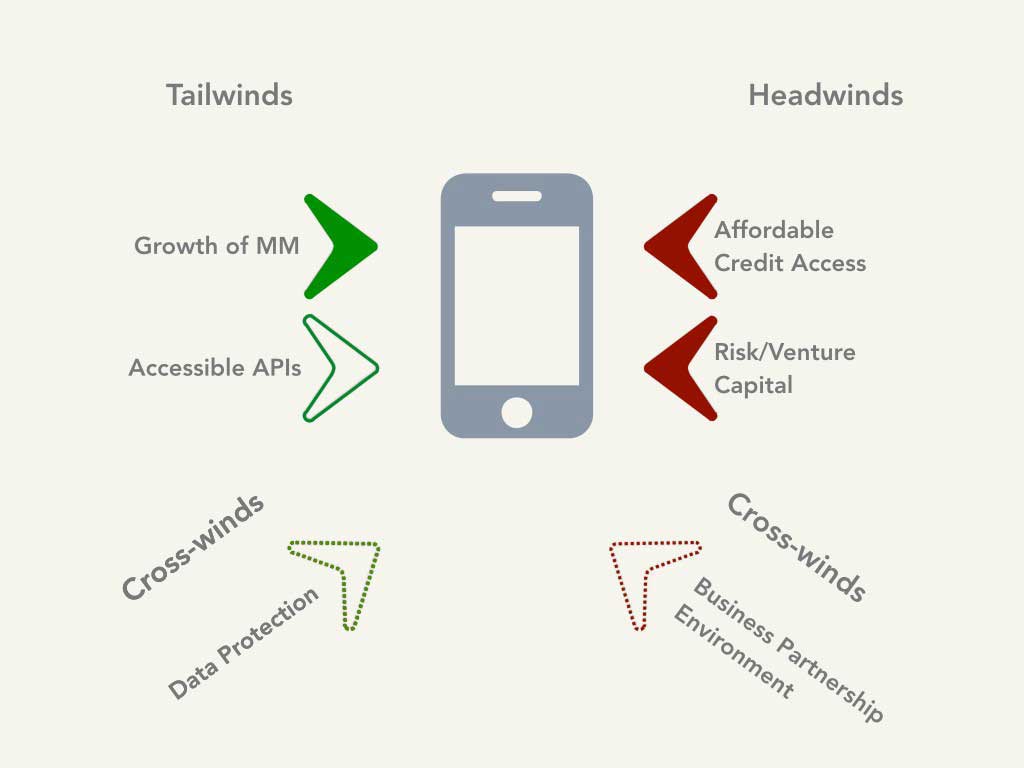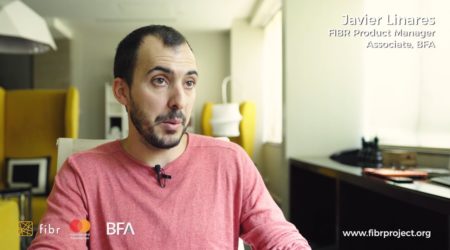How Favorable is the Environment for Inclusive Fintech in Ghana?

The FIBR (Financial Inclusion on Business Runways) project is an action research project of BFA (in partnership with The MasterCard Foundation), which seeks to demonstrate how business transaction data from micro, small and medium enterprises (MSMEs), as captured by smartphones, can accelerate and deepen financial inclusion in developing countries, starting in Ghana.
At the outset of the project, BFA seeks to document the influence of key components of Ghana’s enabling environment for inclusive fintech companies — that is, the factors present in the local market most likely to influence their success. Through research and conversations with fintech companies, bankers, tech hub staff and other stakeholders, BFA has identified the following factors as crucial to the fortunes of fintech companies in Ghana:
- Growth of mobile money (MM)
- Open Application Programming Interfaces (API)
- Access to affordable credit (AC)
- Access to risk capital and venture financing (VC)
- Data protection & sharing environment (DP)
- Business partnership environment (BP)

Our research revealed that on paper at least, Ghana’s enabling environment appears supportive for FIBR fintech companies. The growth of mobile money and the trend towards open APIs will support FIBR fintech partners; while Ghana’s data protection laws & e-money guidelines seem to have clarified some of the rules of the road affecting fintech companies. Yet despite these positive trends and the apparent vulnerability of traditional lenders to disruption, so far few alternative lending models (e.g. P2P lenders) have emerged.
The reasons why fintech companies have yet to fully play in the gaps in the market for financial services in Ghana are only partially clear. Limited debt and equity funding options may have restricted them from developing alternative credit products; and limited ability to enforce contracts may have discouraged them from partnering with other businesses in building-out their respective value chains. FIBR will investigate the influence of these trends over the project’s four-year lifespan.
For our full analysis, please download the publication here.
FIBR stands for Financial Inclusion on Business Runways and aims to learn how to transform emerging business data about low-income individuals and link them to inclusive financial services to deepen financial inclusion and its impact. FIBR is a project of BFA in partnership with The MasterCard Foundation.
Stay connected by signing up for the FIBR mailing list and joining the Inclusive Fintech Group on LinkedIn.



